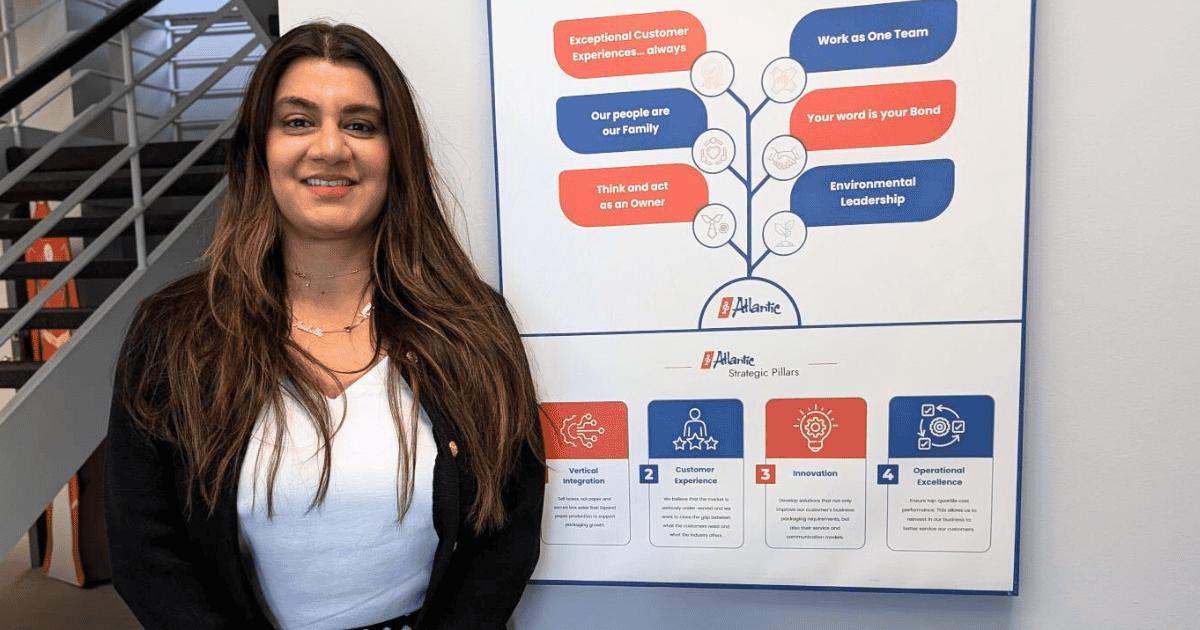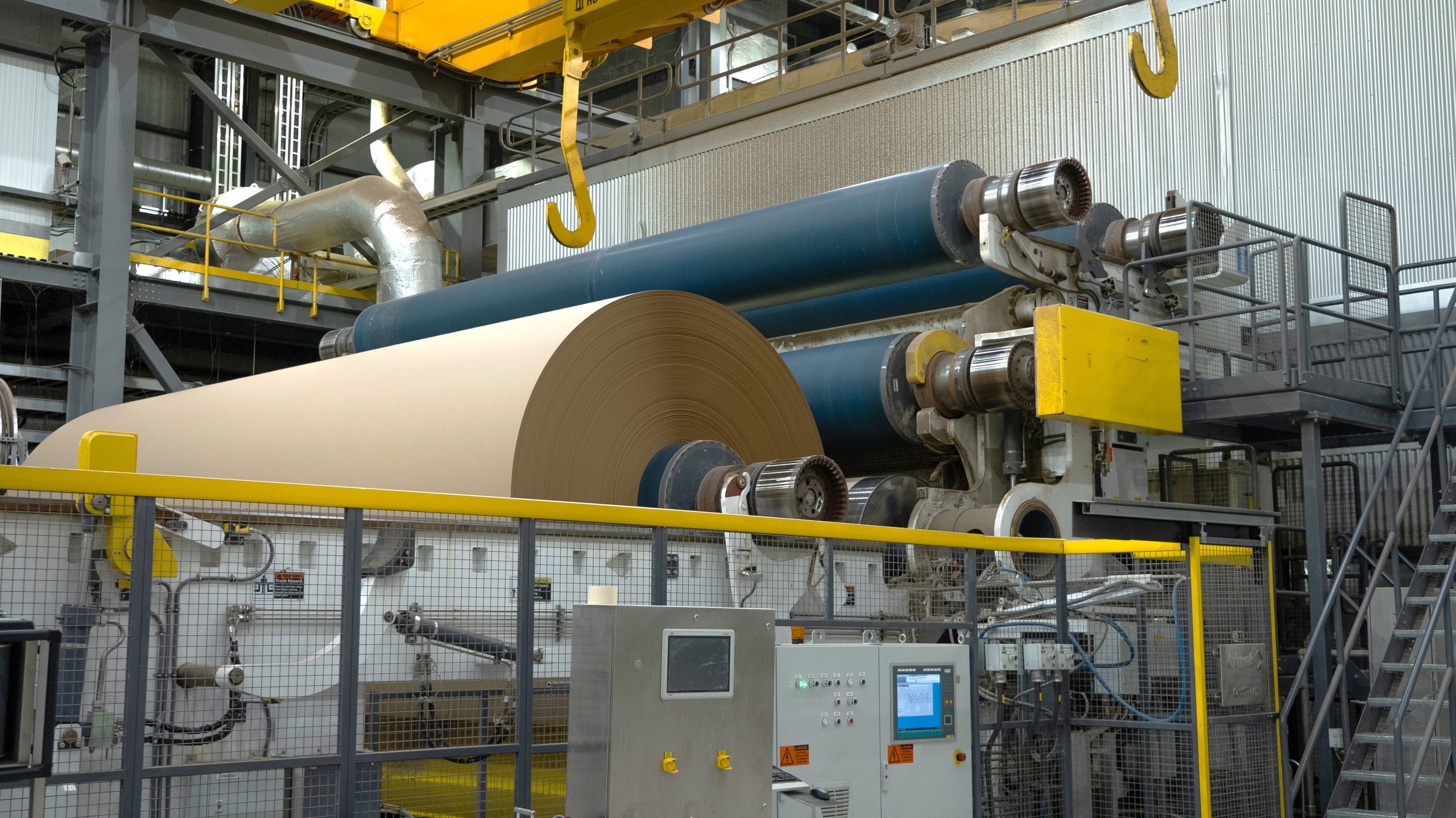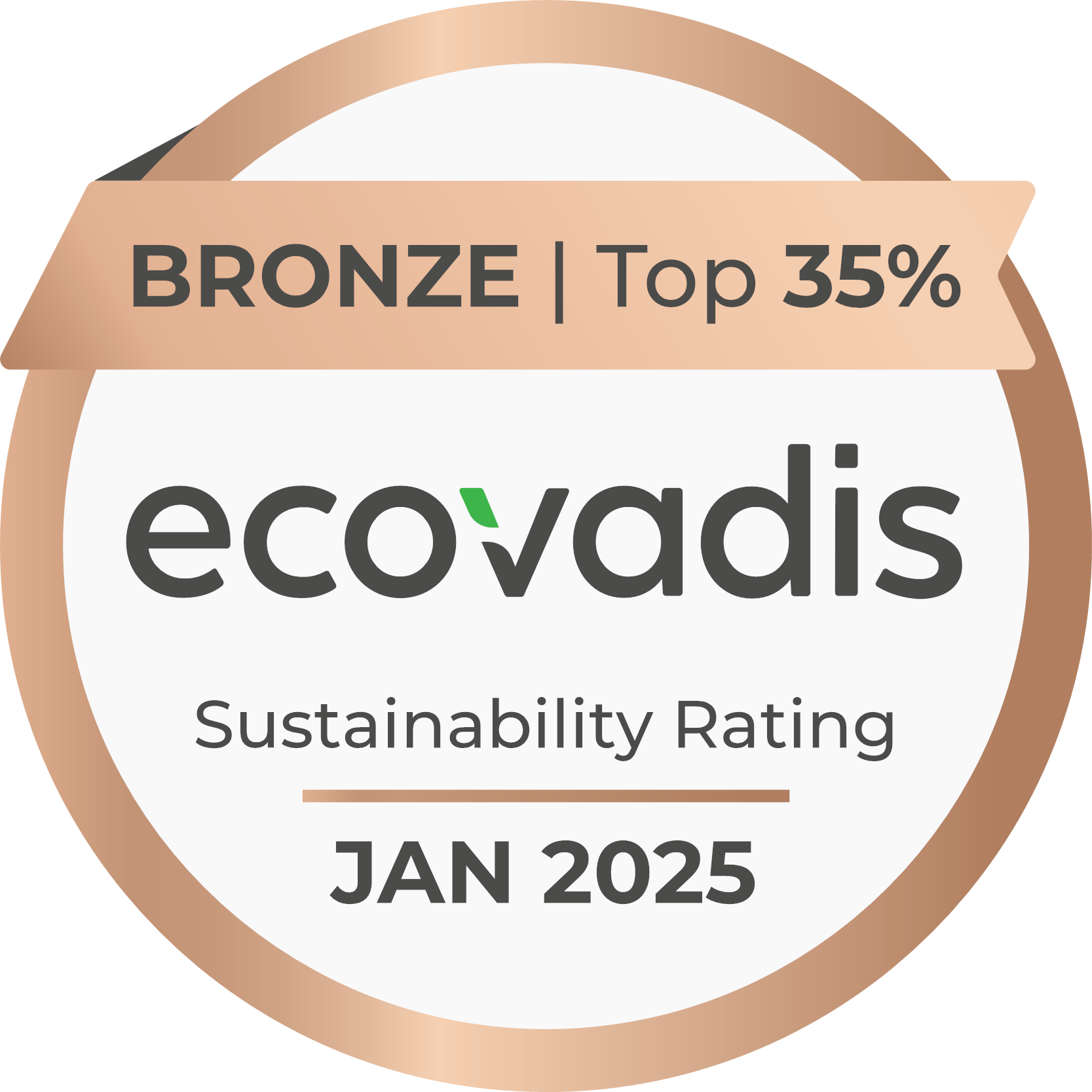Contact Us
or call us now 800.268.5620
or call us now 800.268.5620

Earth Day is a perfect moment to reflect on how organizations can drive meaningful environmental change. We spoke with Sara Lashari, Atlantic Packaging Group’s ESG Program Manager, about the company’s sustainability initiatives, achievements, and commitment to environmental stewardship.
Sara shared valuable insights on AP’s efforts to align with global sustainability goals, including its EcoVadis application, FSC certification, and ambitious targets for the years ahead.
Atlantic Packaging Products is not only reflecting on its significant initiatives toward sustainability but also doubling down on its commitment to exceeding its targets. Collective action, transparency, and innovation transform the company’s ESG efforts into a role model.
Discover more in our 23/24 ESG Report
Sara Lashari (Sara): Absolutely! I’m very fortunate to work in a field that aligns with my personal passion. I’ve always cared deeply about the environment, whether it’s through participating in local environmental initiatives, supporting biodiversity, or taking part in various community planting events that address deforestation. For me, working at Atlantic Packaging Group is a way to merge this personal commitment with professional action. Together, we strive to ensure companies take greater responsibility for reducing their environmental impact.

Sara: Atlantic Packaging has a long history of environmental stewardship, dating back decades. However, our first ESG report in 2024 marked a turning point by consolidating our efforts, setting clear goals, and creating a roadmap for the future.
Our targets for 2030 include reducing emissions intensity, decreasing water consumption intensity, and reducing waste intensity at Atlantic mills. Given the manufacturing intensity of our industry, these are ambitious but essential goals. Our efforts have focused on pathway-driven initiatives to meet these targets, such as adopting operational efficiencies and better resource management.
One of our current initiatives is the installation of solar panels on two of Atlantic Packaging Products’ facilities. This project is ongoing, and we anticipate that by the end of 2025, these two solar panel array projects will be complete. By feeding this renewable energy back into the grid, we are reducing our dependency on non-renewable sources and supporting broader grid decarbonization. This is just one of the initiatives underway to ensure a more sustainable future.
I would like to add that Atlantic’s culture plays a significant role in ESG’s overall success. Collaboration runs deep here, reflected in our efforts to create a workplace that engages employees in sustainability.

Sara: EcoVadis, a global leader in ESG ratings, plays an important role in benchmarking our sustainability practices. Our latest EcoVadis score marks significant progress, earning us the Bronze medal. Much of this achievement comes down to enhanced collaboration and transparency.
Internally, we’ve strengthened monitoring and reporting mechanisms. For example, we have enhanced our data management and oversight by tracking our progress against the targets. These results are reviewed monthly by our steering committee and quarterly by our Board of directors, enabling more responsive decision-making regarding emissions, waste reduction, and water consumption. This process fosters accountability and allows us to make timely adjustments when needed.
Externally, transparency has been pivotal through public reporting and stakeholder engagement. By publishing ESG reports, we’ve been able to share our goals, achievements, and pathways with stakeholders, which has encouraged collaboration across the value chain.
Sara: The Forest Stewardship Council (FSC®) Chain of Custody certification, for example, for Atlantic Packaging Products in Ontario it ensures that the materials we use, particularly paper and packaging, come from responsibly managed forests. For us, this certification is not just about meeting industry standards; it’s about ensuring that our products align with our values and our customers’ sustainability goals.
This certification complements our broader ESG strategy by reinforcing our dedication to responsible use of and biodiversity protection. It’s a win for the environment, our customers, and the communities impacted by forestry practices.
Sara: We believe in partnering with our customers to drive meaningful change across the supply chain. At Atlantic, we provide tools, insights, and eco-friendly packaging solutions that help reduce environmental impact while maintaining high performance.
For example, we offer innovative materials made with recycled content and focus on reducing packaging weight without compromising durability. Our commitment to sustainability extends further through the resources and services we provide. One such tool is our environmental impact calculator, which helps businesses quantify potential waste and carbon emissions reductions when using our packaging solutions. This empowers our customers to make data-driven decisions that align with their sustainability objectives.
We also offer training sessions to educate teams on Corrugated Packaging and effectively implement sustainable practices. These sessions cover topics such as waste reduction, material optimization, and responsible sourcing.
Another key initiative we are proud of is our active collaboration with some customers to advance the principles of the circular economy. We work closely with them to collect scrap paper, which is then reintroduced into our paper manufacturing process. This closed-loop approach strengthens our commitment to fostering a circular economy and provides tangible benefits to our customers by reducing their disposal costs and minimizing the waste they generate. By integrating this process into our operations, we ensure that valuable resources are continuously reused, reinforcing sustainability and creating a shared value for our business and partners.
To support our long-time partner on specific challenges, we offer a more tailored approach. Our experts provide guidance to optimize our customers’ supply chain for their environmental and operational benefits. Together, these offerings support a collaborative pathway to achieving long-term sustainability.
Sara: That’s a tough question—I’m proud of so much of what Atlantic stands for. If I had to pick one, I’d highlight our commitment to achieving ambitious 2030 environmental goals. It’s incredibly rewarding to work for a company that pushes itself to higher standards year after year.
Looking ahead, we’re focusing on new technologies that will further reduce our carbon footprint and improve manufacturing efficiencies. We’re also planning programs to scale our sustainable packaging solutions through all three regions (Ontario, Quebec, and the United States), which is incredibly exciting.
To align with our targets, which are based on our Mills, our environmental initiatives in Ontario have focused on maximizing impact where it’s most critical. One such initiative is the use of biogas, a renewable energy source derived from organic waste, which is utilized to fuel the boilers at our largest Mills. This effort involved significant capital investments to produce and integrate biogas into our manufacturing processes. Additionally, we repurpose mill-generated sludge by burning it to create heat energy, which is then reused in production. Together, these initiatives have delivered a remarkable 25% reduction in natural gas consumption in 2024, saving approximately 15.8 million m³ of natural gas. These achievements demonstrate our commitment to sustainability and reducing greenhouse gas emissions and highlight how integrating environmental stewardship into operations drives both substantial cost savings and operational efficiencies. This exemplifies how environmental and business goals can align to achieve impactful results.
Sara: One of the biggest challenges is that manufacturing processes are inherently resource-intensive. We see challenges as an opportunity. One of the unique opportunities in our industry is finding innovative ways to improve sustainability within inherently resource-intensive manufacturing processes.
Balancing operational demands with environmental goals requires constant innovation. To address this, we’re committed to maintaining robust tracking and reporting frameworks, which help us identify and resolve inefficiencies early.
Additionally, fostering collaboration remains key. By engaging employees, suppliers, and customers in our ESG vision, we create a collective drive toward sustainability that helps us overcome any barriers.
Sara: Earth Day reminds us that sustainability is about collective impact. Whether you’re an individual or a corporation, every step toward environmental stewardship matters. By working together, sharing knowledge, and holding each other accountable, we can create a future where businesses thrive harmoniously with the environment.
The circular economy is a pivotal part of building a sustainable future. Unlike the traditional linear model of “take, make, dispose,” a circular economy focuses on reducing waste, reusing materials, and creating systems that prioritize resource efficiency. This approach minimizes environmental impact and drives innovation and economic resilience.
“The true superpower we all have is the ability to make responsible choices every day that protect and restore our planet—together, these choices can shape a better, sustainable future for everyone.”
– Sara Lashari, ESG Program Manager, Atlantic Packaging Group
For more updates on Atlantic Packaging Group’s sustainability initiatives and how the company is shaping the future of packaging, visit Atlantic Packaging’s Sustainability Page. Together, we can make a meaningful difference.
© 2026 Atlantic Packaging Products Ltd. All rights reserved.
Atlantic Packaging Products
We firmly believe that the internet should be available and accessible to anyone, and are committed to providing a website that is accessible to the widest possible audience, regardless of circumstance and ability.
To fulfill this, we aim to adhere as strictly as possible to the World Wide Web Consortium’s (W3C) Web Content Accessibility Guidelines 2.1 (WCAG 2.1) at the AA level. These guidelines explain how to make web content accessible to people with a wide array of disabilities. Complying with those guidelines helps us ensure that the website is accessible to all people: blind people, people with motor impairments, visual impairment, cognitive disabilities, and more.
This website utilizes various technologies that are meant to make it as accessible as possible at all times. We utilize an accessibility interface that allows persons with specific disabilities to adjust the website’s UI (user interface) and design it to their personal needs.
Additionally, the website utilizes an AI-based application that runs in the background and optimizes its accessibility level constantly. This application remediates the website’s HTML, adapts Its functionality and behavior for screen-readers used by the blind users, and for keyboard functions used by individuals with motor impairments.
If you’ve found a malfunction or have ideas for improvement, we’ll be happy to hear from you. You can reach out to the website’s operators by using the following email
Our website implements the ARIA attributes (Accessible Rich Internet Applications) technique, alongside various different behavioral changes, to ensure blind users visiting with screen-readers are able to read, comprehend, and enjoy the website’s functions. As soon as a user with a screen-reader enters your site, they immediately receive a prompt to enter the Screen-Reader Profile so they can browse and operate your site effectively. Here’s how our website covers some of the most important screen-reader requirements, alongside console screenshots of code examples:
Screen-reader optimization: we run a background process that learns the website’s components from top to bottom, to ensure ongoing compliance even when updating the website. In this process, we provide screen-readers with meaningful data using the ARIA set of attributes. For example, we provide accurate form labels; descriptions for actionable icons (social media icons, search icons, cart icons, etc.); validation guidance for form inputs; element roles such as buttons, menus, modal dialogues (popups), and others. Additionally, the background process scans all the website’s images and provides an accurate and meaningful image-object-recognition-based description as an ALT (alternate text) tag for images that are not described. It will also extract texts that are embedded within the image, using an OCR (optical character recognition) technology. To turn on screen-reader adjustments at any time, users need only to press the Alt+1 keyboard combination. Screen-reader users also get automatic announcements to turn the Screen-reader mode on as soon as they enter the website.
These adjustments are compatible with all popular screen readers, including JAWS and NVDA.
Keyboard navigation optimization: The background process also adjusts the website’s HTML, and adds various behaviors using JavaScript code to make the website operable by the keyboard. This includes the ability to navigate the website using the Tab and Shift+Tab keys, operate dropdowns with the arrow keys, close them with Esc, trigger buttons and links using the Enter key, navigate between radio and checkbox elements using the arrow keys, and fill them in with the Spacebar or Enter key.Additionally, keyboard users will find quick-navigation and content-skip menus, available at any time by clicking Alt+1, or as the first elements of the site while navigating with the keyboard. The background process also handles triggered popups by moving the keyboard focus towards them as soon as they appear, and not allow the focus drift outside it.
Users can also use shortcuts such as “M” (menus), “H” (headings), “F” (forms), “B” (buttons), and “G” (graphics) to jump to specific elements.
We aim to support the widest array of browsers and assistive technologies as possible, so our users can choose the best fitting tools for them, with as few limitations as possible. Therefore, we have worked very hard to be able to support all major systems that comprise over 95% of the user market share including Google Chrome, Mozilla Firefox, Apple Safari, Opera and Microsoft Edge, JAWS and NVDA (screen readers).
Despite our very best efforts to allow anybody to adjust the website to their needs. There may still be pages or sections that are not fully accessible, are in the process of becoming accessible, or are lacking an adequate technological solution to make them accessible. Still, we are continually improving our accessibility, adding, updating and improving its options and features, and developing and adopting new technologies. All this is meant to reach the optimal level of accessibility, following technological advancements. For any assistance, please reach out to
We use cookies to enhance your browsing and personalize content. By continuing to use this website, you agree to our use of cookies as outlined in our Privacy Policy.
